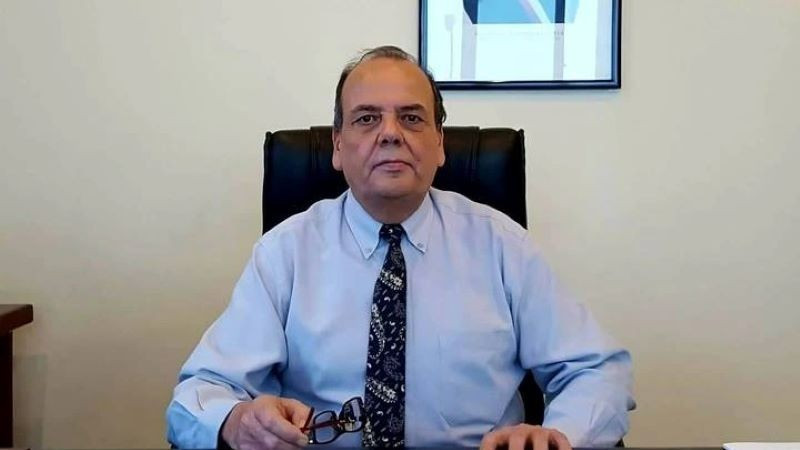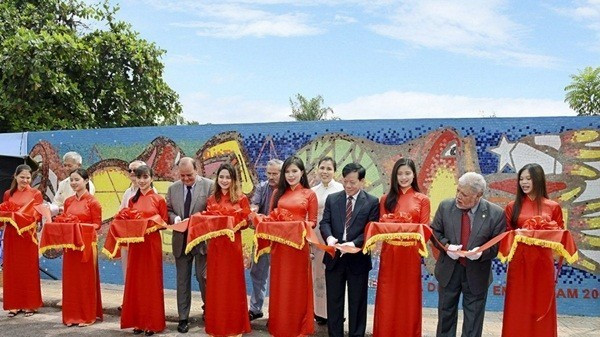Global symbol of courage and creativity in the struggle for national independence
In 1945, the success of the August Revolution and the birth of the Democratic Republic of Viet Nam were inseparable milestones, both aimed at national independence, reunification, and the restoration of self-determination, in line with Viet Nam’s history, realities, and unique identity.

On the occasion of the 80th anniversary of the success of the August Revolution (August 19, 1945 –2025) and the 80th anniversary of the National Day of the Socialist Republic of Viet Nam (September 2, 1945 –2025), a reporter of Nhan Dan Newspaper interviewed Claudio De Negri, Head of the External Relations Department of the Communist Party of Chile, former Ambassador of Chile to Viet Nam, on the significance of these historic milestones.
Q: The year 2025 marks the 80th anniversary of the August Revolution and the 80th anniversary of the National Day of the Socialist Republic of Viet Nam. In your opinion, what is the significance of these historical events for the Vietnamese people?
A: In my view, these are inseparable milestones directed towards the same goal: national independence, reunification, and liberation from colonial-imposed division between the North and the South; restoring dignity and the right to self-determination, in line with Viet Nam’s history, realities, and identity.
I would also like to add that these historic events went beyond the borders of Viet Nam and became a global symbol, an example of courage, creativity, and bravery for the struggles of other nations to liberate themselves from colonialism and imperialism.
Personally, like many Chilean youths in the late 1960s, I was an active participant in demonstrations involving thousands of people in squares and theatres to express solidarity with the just struggle of the Vietnamese people.
At that time, we organised concerts, school writing contests, designed posters and magazines to support Viet Nam. Chilean writers and musicians stood side by side with the Vietnamese people, and the image of “Uncle Ho” was widely known in Chile as a hero.
In 1969, thousands of Chilean youths marched for five days from the city of Valparaiso to the capital Santiago to support Viet Nam, and in that same year, our musician Victor Jara composed the song “The Right to Live in Peace,” which people still sing at public demonstrations today.
The struggle of the Vietnamese people was decisive in shaping the understanding of anti-imperialism and international solidarity, values that transcend generations.
Q: Eighty years after President Ho Chi Minh read the Declaration of Independence proclaiming the birth of the Democratic Republic of Viet Nam, and after enduring countless hardships, including the war of resistance against imperialist aggression, Viet Nam has now made firm progress and achieved many remarkable accomplishments in all fields. How do you assess Viet Nam’s development after 80 years of construction and development, particularly after 40 years of Doi Moi?
A: The Declaration of Independence read by President Ho Chi Minh at Ba Dinh Square in 1945 outlined the path, but that path had to endure many arduous stages before becoming reality, especially after the peaceful victory of national reunification in 1975.

In the years that followed, the Vietnamese people embarked on a new battle in another arena, involving many kinds of weapons and across a different terrain. When the war ended, the country was devastated. Infrastructure was destroyed by bombs, industry stagnated, essential services were severely damaged, and the State faced immense financial difficulties in restoring and developing the economy.
By the 1980s, Viet Nam’s GDP per capita had not exceeded 200 USD, and Viet Nam was among the poorest countries in the world.
The clearest evidence of the achievements brought about by Viet Nam’s Doi Moi over the past 40 years is that by 2024, GDP per capita reached 4,700 USD, the poverty rate fell below 2%, and inflation and unemployment were kept under control.
Viet Nam became one of the world’s largest exporters of electronics and textiles, maintaining an economic growth rate of over 3% per year even amid the crises of neoliberal globalisation.
The transition from war to peace posed a new major challenge for the Vietnamese people, which Viet Nam faced with resilient will, creativity, and courage in building a socialist rule-of-law state and a socialist-oriented market economy.
This effort has helped millions escape poverty, significantly improved living standards, and made major contributions both in theory and practice to the nature and development of socialism.
Q: Under the leadership of the Communist Party of Viet Nam, the country is entering a new era – an era of nation’s rising. Accordingly, Viet Nam aims to become a developed, high-income socialist country by 2045, making greater contributions to peace, stability, cooperation, and development in the region and the world. What is your assessment of this goal?
A: We cannot deny that the world is tense with crises. While the economy plays a key role in all aspects of society, in capitalist countries other crises have also emerged, such as the degeneration of the concept of liberal democracy, the dominance of individualism, or institutional crises where people’s participation is reduced only to casting ballots in elections without genuine involvement.
One strength in Viet Nam’s Doi Moi process is the real participation of the people, from taking the people as the root, to identifying the economic challenges of the whole country– something that every Vietnamese person is proud of, as a subject and participant in each step forward.
Viet Nam has transformed from an agricultural economy into one of the most dynamic markets in the world, with an economy centred on people’s welfare, enabling them to take part in reforms and to address shortcomings and limitations.
Viet Nam’s Doi Moi process is a prime example: under the leadership of the Communist Party of Viet Nam and the management of the State, Viet Nam has integrated the role of the market and foreign investment into its economy while upholding socialist principles.
Viet Nam balances economic growth with environmental protection and sustainable resource management, placing people’s welfare and national development at the centre. This is also the spirit driving the streamlining of the state apparatus currently being implemented, aiming for a more direct and seamless relationship between the State and the people.
Q: Despite the geographical distance, in recent years, bilateral cooperation between Viet Nam and Chile has been promoted across many fields and has achieved important results. In your opinion, what should the two sides do in the future to make Viet Nam–Chile cooperation more substantive and effective?
A: Chile and Viet Nam signed a Free Trade Agreement (FTA) that came into effect in 2014. Over the past five years, bilateral trade has grown at an average annual rate of 5.65%. Trade exchanges have included a wide variety of goods (fruits, wine, refined copper, frozen fish, timber, coffee, transmission equipment, and other products).
However, there remains much potential for expanding trade, including extending markets to other products as well as cooperating in forming value chains.
In addition, developing “people-to-people” relations through exchange delegations in fields such as arts, scientific innovation, tourism, and culture is a solid foundation for promoting more comprehensive cooperation between the two countries.
After Cuba, Chile was the first country in Latin America and the Caribbean to establish diplomatic relations with Viet Nam in 1971.
Q: It is known that from 2014 to 2018, you served as Chile’s Ambassador to Viet Nam. Could you share some important achievements in bilateral relations, as well as some memorable experiences during your time living and working in Viet Nam?
A: That was a period when bilateral trade grew by more than 21% and exceeded 850 million USD per year– a figure significantly higher than in previous years, particularly due to the positive impact of the Free Trade Agreement between the two countries, implemented since 2014.
During this time, the two sides also reached an agreement on visa exemption for citizens of both countries for stays of up to 90 days; strengthened bilateral political consultations; and in 2017, Chilean President Michelle Bachelet attended the APEC Summit in Viet Nam, during which bilateral relations were consolidated and elevated.
On a personal level, I was honoured to experience my time in Viet Nam, to live and interact directly with a cheerful, friendly, generous people, rich in self-respect, hard-working, treasuring their national identity and traditions, and always mindful of their country’s history. Witnessing firsthand the vision with which Viet Nam builds socialism suited to its national realities was a profoundly meaningful experience for me.
Reporter: Thank you very much!








